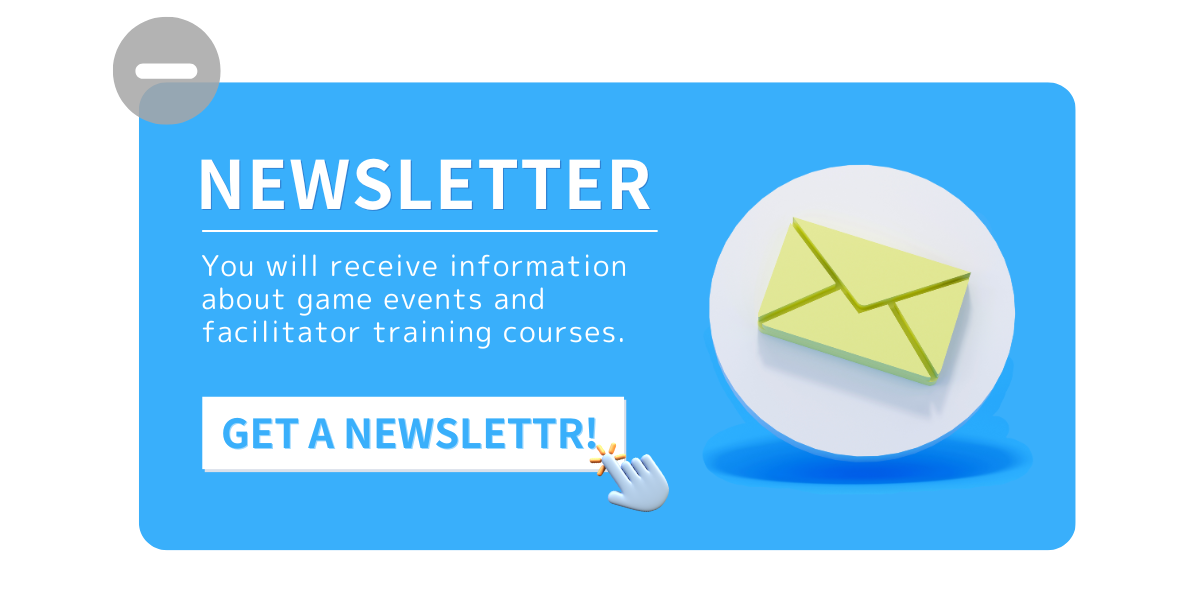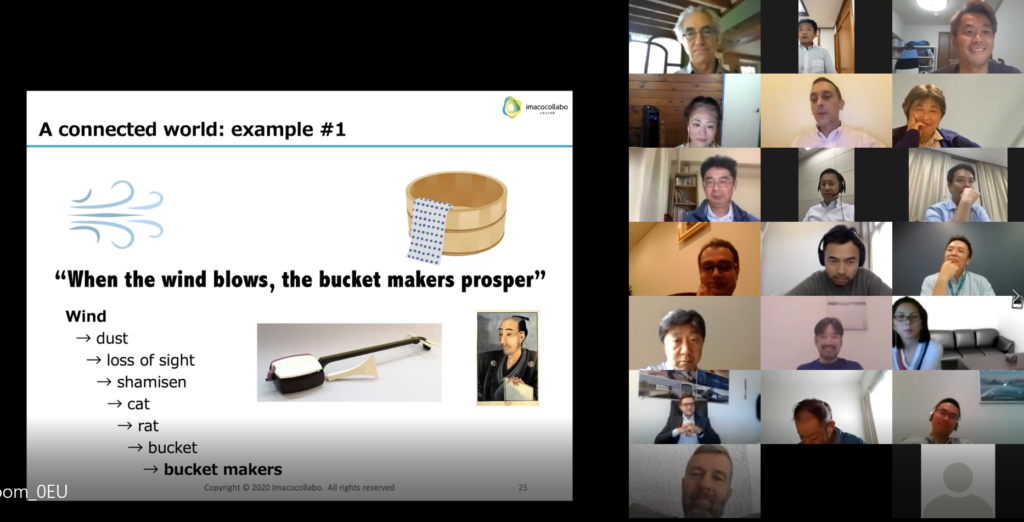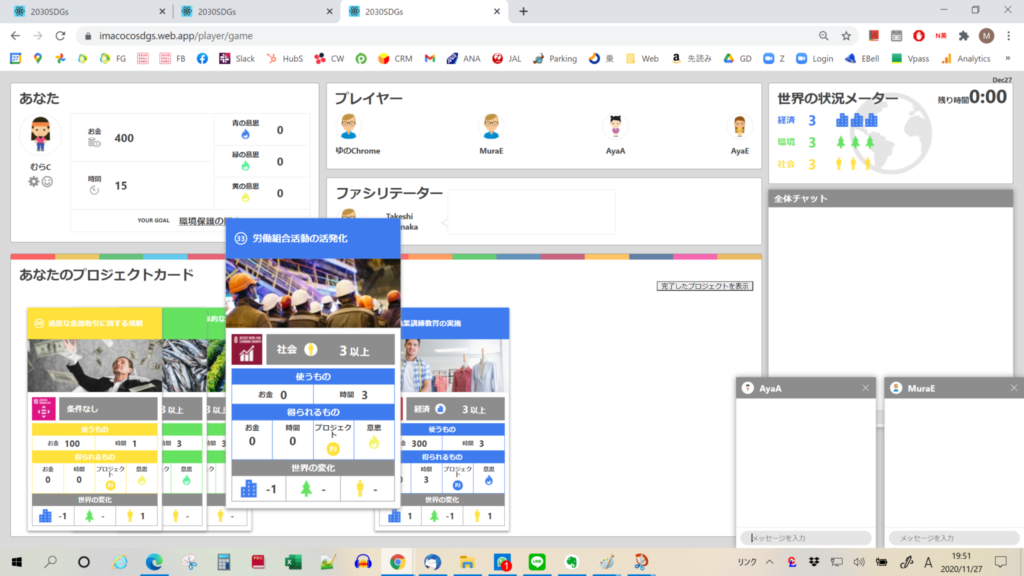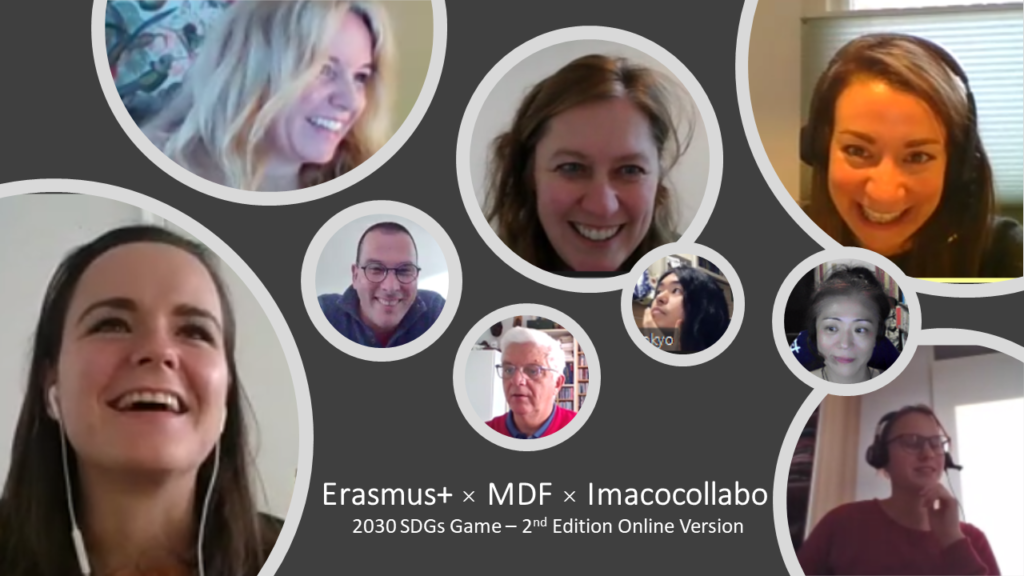Please tell us about the background behind your organizing this training event.
We are an asset management company already known for promoting responsible investments (ESG investing), so we see ourselves as expected to play a significant role in achieving the SDGs. At the same time, the level of understanding of the SDGs among our employees is not consistent, so our immediate task was to raise this level throughout the company.
We intended to implement SDGs training for all officers and employees much earlier; however, because of the gap between different employees’ levels of knowledge, we had been unable to simply create a knowledge-based training with contents that would be satisfactory to everyone. Then, we received a proposal from one of our staff who had personally participated in an “experiential training using a card game”, we realized that a training aimed at “experiencing the worldview of the SDGs” could be interesting for every participant.
In the end, we made a top-down decision to hold an “experience-based training using a card game”, and we provided information on this training to internal parties with consideration to the following two points:
・We held this training multiple times with the same contents to ensure that all officers and employees would at least participate in one of the training sessions.
・Emphasized that this training was going to be implemented as part of company operations and held the events during working hours.
What are your honest impressions about organizing the training/event?
We gave no advance information on the game so that the participants would be unbiased, so they were able to have various discoveries while enjoying the game.
When trainings run long, there is inevitably a slump that occurs, and some participants lose focus. However, my experience was that our participants kept focus all the way through the training thanks to the format of first experiencing the game, then reflecting on the experience.
Also, the design of the training was effective for getting the participants to really understand “the SDGs worldview.” (It is frustrating that I cannot explain this better in words.)
According to the participant questionnaires, many found the training to be not only fun but also easy to understand, and it worked well in deepening their level of understanding of SDGs.
What moments or scenes were memorable at the training/event?
Because this training was targeted at all officers and employees, we purposely made teams consisting of people from different departments and in different positions. By playing the game together with people from departments they did not usually have contact with, participants saw unexpected sides of one another, and they also had a great opportunity to interact with each other beyond their sections and departments.
There were scenes in which officers led the way in bringing out their playful sides before anyone else, which may have been unexpected to people who are unfamiliar with this workshop.
What were some memorable comments and questionnaire replies?
Many participants who were unaware of the SDGs in relation to their own work commented that they deepened their awareness.
(Examples)
“Through the game, I got a sense of how economy and society are connected. I decided to look for small and immediate actions I can take for the sake of the SDGs.”
“Now that I know about many corporations’ initiatives regarding the SDGs, how I watch the news and read the newspaper will change. I want to think about the SDGs in my work as well as in my personal life.”
More memorable comments follow:
・I thought that in order to achieve well-balanced development, you needed to have both targets you want to reach and clear vision to read what is going on in the world. I wonder why the consumer behavior of the Japanese people tends to be skewed towards thinking in terms of economics. Is it because we still do not have enough money? I want to find out what enlightening insights people have about this in Western countries.
・I was surprised that one of the premises of the game was that everyone has different values (different goals).
・I want to play the game with people from other companies and from other business fields.
・I had the sense that the rules of the world are changing.
・I learned that the accuracy of our vision of the world and whether or not we shared information horizontally affected the level of achievement of the goals.
・I have children, so I felt deeply the future need for the SDGs as well.
・I want to tell my family and friends about this.
・The experience was a good opportunity to think about how the world is connected and about what will happen to children in the next generation.
・This game gives a concrete understanding of how the way we use time and money impacts human lives and society, so I felt that this game can also be used for education of children.
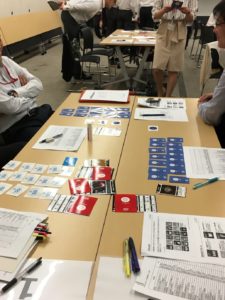
What does sustainability mean to your company?
We are an asset management company, operating for the purpose of maximizing investment profits from the funds deposited to us by our clients, through investment options such as equity investment in top companies. At the same time, investment behaviors by asset management companies—including exercise of voting rights and dialogue with investment destination companies—are being looked to as contributors to sustainable development of investment destination companies and ultimately to society and economy as a whole.
In other words, we believe that contributing to achieving a sustainable world and economy through asset management is the duty of responsible investors and is a social role of asset management companies.
Please share a message to readers of this article.
Because we held this training for all officers and employees during working hours, we were initially worried that there would be negative reactions to the training itself. However, people gave very positive comments after the training. Thus, we, the organizers, honestly feel relieved.
This training was not about academic learning, but rather was aimed at having the participants understand the essence and worldview of the SDGs through experience, and in my view participant satisfaction was high and people were able to experience the SDGs as something that is personally relevant to them.
It is almost impossible to convey the appeal of this game without actually experiencing it. However, because of the exquisite design of this game, in my experience, even participants who come not to learn but just enjoy themselves end up gaining something valuable from the training.
Please give a brief comment to conclude this interview!
This training was simply a first step: to make sure that each employee understands the SDGs. Now we need to work out what we can commit to do as a company, and what each of us can do on an individual level in order to achieve the SDGs; then we need to look at how not only to disseminate that information, but also how we will incorporate those commitments into company operation.
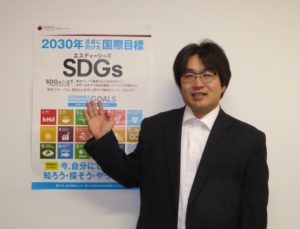
Interviewee:
Sompo Japan Nipponkoa Asset Management Co., Ltd.
Eiji Kawakami, Director, Corporate Planning Department

